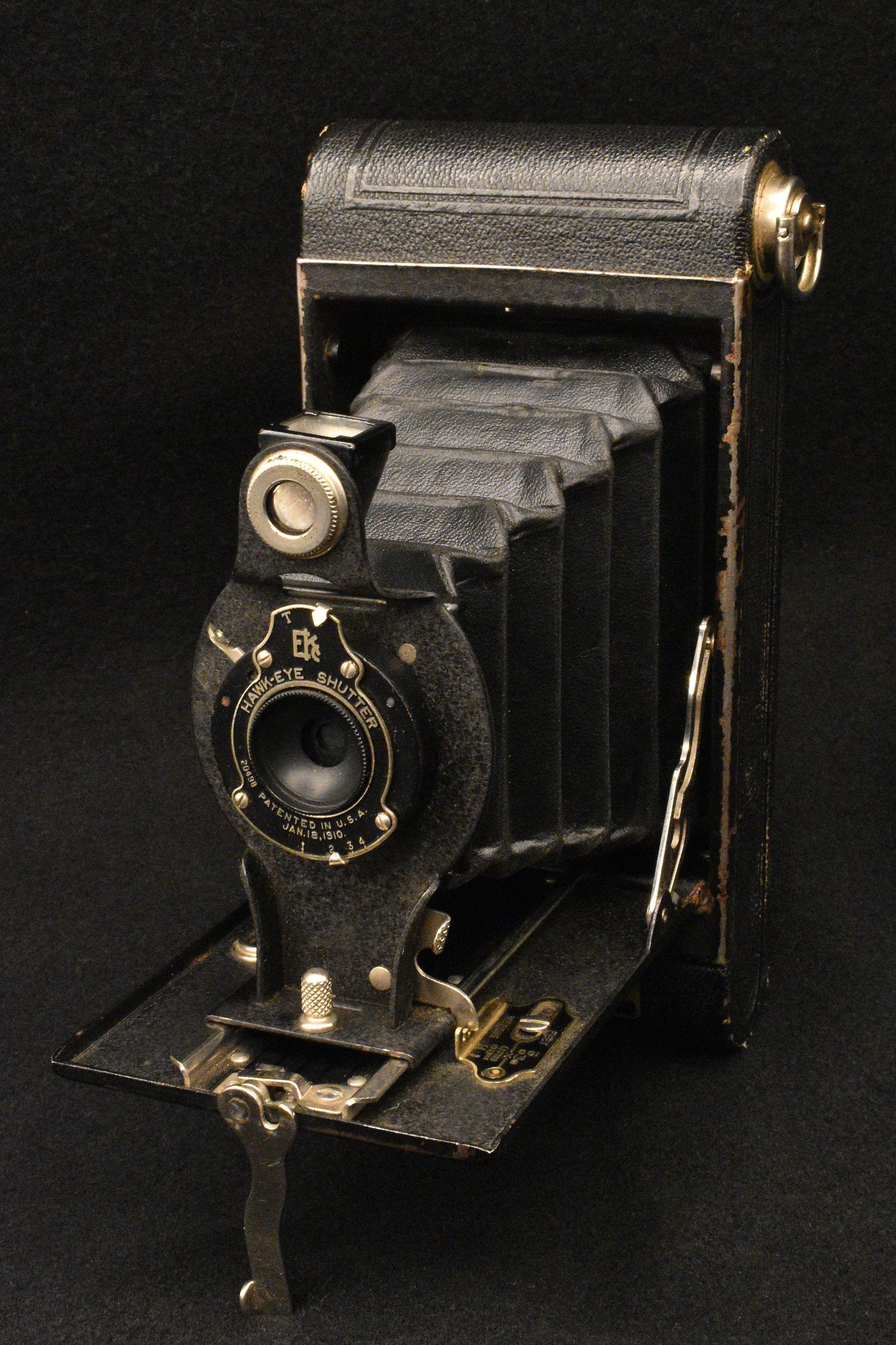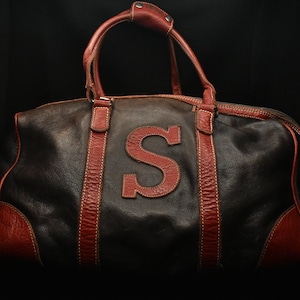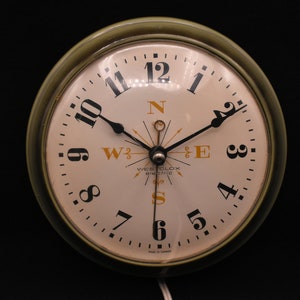









Vintage
Vintage Kodak No. 2 Folding Cartridge Hawk Eye Model C Camera
-
DetailsReserved for Larissa
We're all familiar with Kodak and their influence on modern photography. It was George Eastman who released the first camera, called the 'Kodak,' in 1888. For a relatively cheap $25, Eastman would send you a pre-sealed simple box camera with 100 exposures. You would send the camera back to him when you were done and he would develop them for you. This idea and the simplicity with Which Eastman managed to wrangle this technology and show it to the public was unparalleled. It was a resounding success and the company grew at an astounding rate. The Eastman Kodak company was almost solely responsible for the first pictures taken of far-flung lands and the ravages of war. Their influence on photography is simply immeasurable. However, the cameras and technology attributed to Kodak may not have been developed, in-house. During the decades around the turn-of-the-20th century, companies were being born and bought, established and bankrupt, in droves. Technological evolution was transforming the world and more and more brilliant minds were producing new and amazing inventions. The Hawkeye camera was originally produced by Boston Camera Company in the early 1880s. They were responsible for the Bull's Eye Box Camera. That 'Bull's Eye' was a little red window that showed film count. That was changed to 'Hawk Eye' in subsequent years. That little feature would follow Kodak cameras for decades to come, but we're not there yet. In the late 1880s, Boston Camera Co. which was a new and fairly successful outfit, attracted the attention of Thomas Henry Blair, the owner of Blair Camera Company. Blair had recently restructured his business to have a go at selling to the amateur photographer instead of providing chemicals and solid plates for the fading Victorian methods of photography Blair was known for. He had a vested interest in curbing Kodak's astronomical growth in the burgeoning amateur photography market. By acquiring Boston Camera Co. in 1890, Blair bought the Hawk Eye and all of Boston's consumer-directed products. He fought hard against the commercial and technological juggernaut that was Eastman Kodak Company. Although he put up a good fight, Blair had to be restrained by his chief investor who stepped in and took control of Blair Camera Co. in 1899. He had no choice and, in 1899, he sold Blair Camera Company to Eastman Kodak to recoup his losses. Kodak had all they needed to continue their near-monopoly of the photography market. Over the next 5 years, they managed to put a Kodak Brownie camera into over a third of Canadian and American hands.
This beautiful camera comes from an in-between time. Developed in the 1920s, the Kodak No. 2 Folding Cartridge Hawk Eye Model C Camera (a mouthful, I know) was very successful. It was produced from 1926 to 1934 and was constructed at a time when camera technology wasn't exactly settled. During this time, you could purchase a vast variety of cameras, many using different technologies with different films and different associated costs. Kodak was the obvious choice for most consumers, but even they weren't settled. in 1930, Kodak actually offered cameras that used 4 different sizes of film. The continuity of later film cameras wasn't there yet. Hence the ridiculously long name. We can break it down, though, to make sense of it:
No 2 refers to the model of Hawk Eye. Given that it wasn't Kodak that released the first Hawk Eye, they had to release their first Hawk Eye as the Number 2. Folding means it has bellows (the accordion-looking portion) and an extending lens. The Model C was just to confuse consumers, I'm convinced. It wasn't that Kodak was being purposely obtuse - there was logic to their madness. Every subsequent model number contained a new piece of technology. Whether it be a shutter option or a new lens, a given model would be given a new model letter or number, in addition to its previous name. As such, there's much confusion regarding models and variations of 1920s cameras.
This camera is in fairly good condition. The shutter works perfectly, as does the aperture. The lens takes a little effort, but folds out well and locks in place, snugly. The bellows are perfect with no tears or pin holes. The exterior is slightly scuffed, commensurate with age and the viewfinder is a bit foggy, but the leatherette is in pretty good condition. Load up some film and you're ready to go!
It's a solid and handsome camera and would make a great addition to the existing vintage photography collection or a perfect first camera for someone looking to get into vintage photography.
As always, please message us with any questions or concerns. We're always happy to answer questions or even just to chat about the past.
Thanks for visiting C&K! -
Shipping & Policies
Shipping from Canada
Processing time
1-2 business days
Customs and import taxes
Buyers are responsible for any customs and import taxes that may apply. I'm not responsible for delays due to customs.
Payment Options
Returns & Exchanges
I gladly accept returns and exchanges
Just contact me within: 3 days of delivery
Ship items back to me within: 7 days of delivery
I don't accept cancellations
But please contact me if you have any problems with your order.
The following items can't be returned or exchanged
Because of the nature of these items, unless they arrive damaged or defective, I can't accept returns for:
- Custom or personalized orders
- Perishable products (like food or flowers)
- Digital downloads
- Intimate items (for health/hygiene reasons)
Conditions of return
Buyers are responsible for return shipping costs. If the item is not returned in its original condition, the buyer is responsible for any loss in value.
Frequently Asked Questions
Can I combine delivery on multiple items?
Of course! We'd be happy to assist. Just send us a quick message and we'll make sure to combine your items into a single package to reduce the shipping costs.



